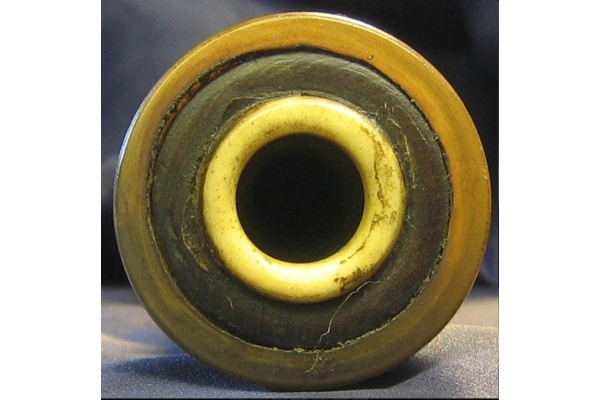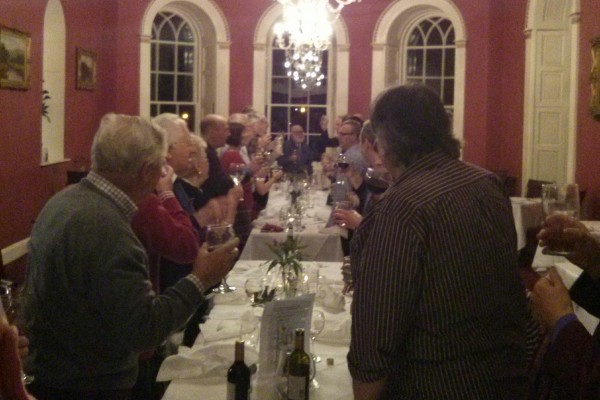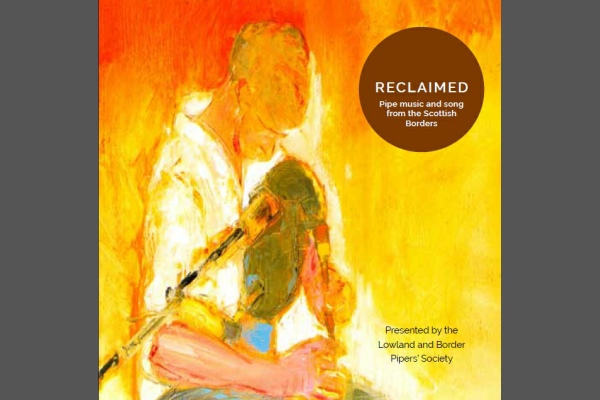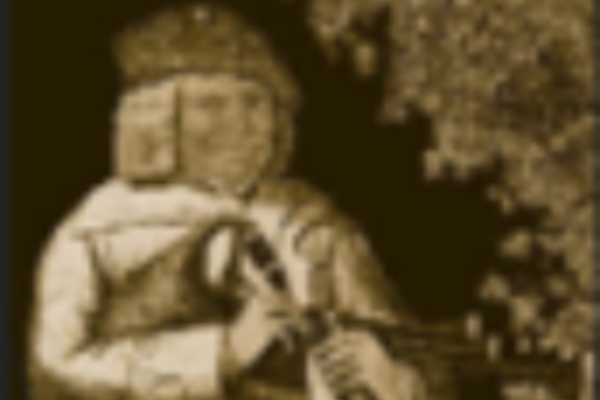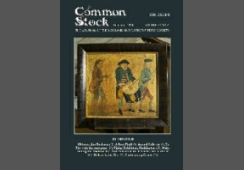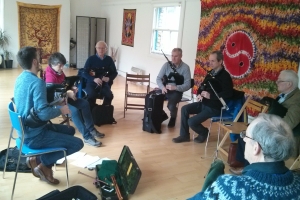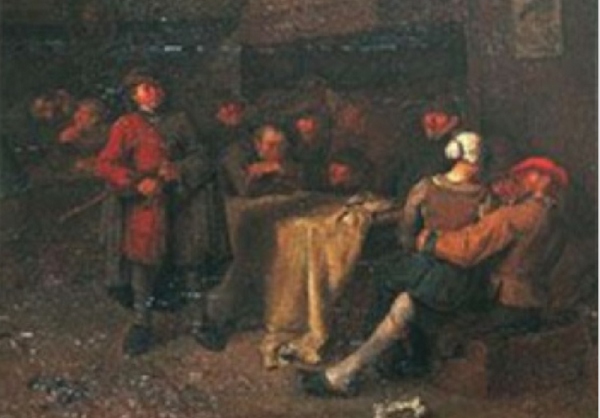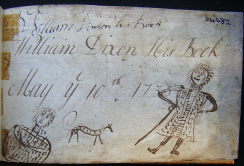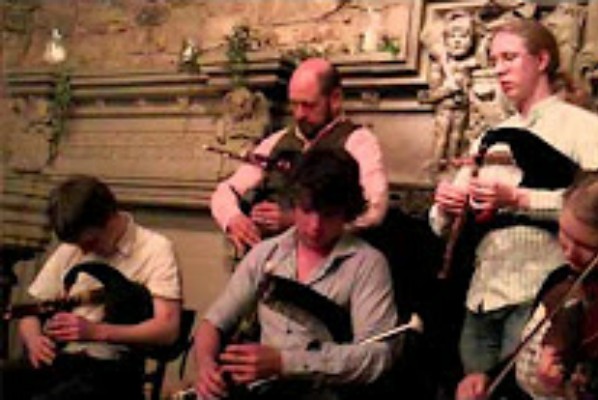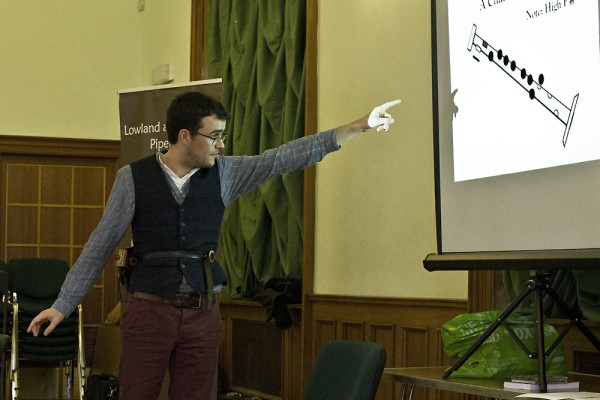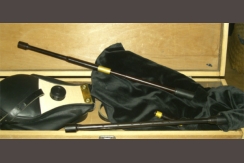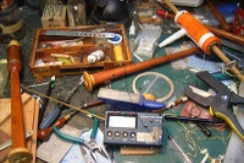John Bushby reviews Volume 7 in the Borders Traditions series produced by Fred Freeman
CD recordings dedicated to the Scottish Lowland Pipes and Scottish Smallpipes are few and far between and are eagerly awaited, certainly by me. So it was with this new recording produced by Dr Fred Freeman, Volume 7 in the Borders Traditions series of CDs. This offering features two talented young pipers, Chris Waite and James Thomson aided and abetted by multi-instrumentalist Marc Duff on bodhran, bouzouki, recorder and whistle; Stewart Hardy on fiddle and viola; Stevie Lawrence on bouzouki, guitar, bodhran and dulcimer and Angus Lyon on accordion and keyboard.
This is not a recording of specific Border music and we must ask in all fairness, what is Border music? It is often hard to pinpoint exactly what tunes come from where in the UK as most areas will have their own versions of the same or similar tunes. However as an example of music played on the bellows-blown Lowland and Smallpipes of Scotland you should enjoy it. I think the CD title ‘Borders Young Piper’ refers more to the fact that the pipers are young, from the Scottish Borders and play the ‘Border Pipes’ rather necessarily a recording of specific Border music.
To my ears as a reviewer, it is a recording of two halves. I will admit that on first hearing I turned it off after the first six or seven tracks as I felt I could not bear the sound of fighting harmonies with the whistles etc. overpowering the pipes. On some tracks the melody on the pipes was almost lost, most notably on track 6, Go to Berwick Johnnie. Also Stewart Hardy’s usually exquisite fiddle playing was lost on some of the earlier tracks. The sound and pitch of fiddle and Lowland pipes especially are so close it needs good separation in the mixing. However, on tracks 9–13 there is a more balanced sound as there doesn’t seem so much in the way of fighting harmonies.
Whilst harmonies are a good to hear they need to be balanced more in the mixing. I also feel that on many of the tracks the main melody was not allowed space to be heard and to ‘breath’ before other instruments launched in. For example the first tune on track 7, The Gardener’s March, is not allowed to develop before the players launch into the second tune. That tune deserved more time to develop.
The CD opens with some lovely whistle playing being joined by the pipes but then a grinding style of accordion playing to my ears ruins the track. I found the same thing happening on the previous Fred Freeman Border Piping CD. This is not to say that the playing is bad, far from it, but as an arrangement to my ears it does not work in the general context of the music portrayed on the CD. While innovation is good it should add, not detract, from the music. This is a personal view and no doubt others may disagree. On this score I don’t think we should be too hide bound by what we perceive as the tradition either, but if something doesn’t add to the overall picture then leave it out.
This all may sound over critical but dubious arrangements and balance can ruin an otherwise delightful CD.
It is a shame too that it wasn’t seen fit to feature both pipers playing solo rather than always in a band situation. This would have provided some variation but it would also have enabled the listener to hear the pipes in their own glory with the harmonic offerings of the drones contributing to the sound. Drones are an integral part of piping and they tend to get lost in a band situation.
There are some very nice original compositions by James Thomson and Chris Ormston that sit well with the traditional tunes.
I feel too that with any CD there should be rather more acknowledgement of the tune sources than the summaries Fred provides in his introductory notes; only the original compositions are fully credited
.
This is a CD that takes a few playings to ‘get into’ it. Did I like it and would I recommend it? At first playing maybe not but on more than one playing I think it would be worthwhile addition to a collection and at the very least proves that the pipes are alive, well, and living in the hands of the younger generation irrespective of what music is being played.
Thanks must go to Dr Fred Freeman for his enthusiasm in bringing the bellows piping of Scotland and its music to a wider audience.
I really like the delightful CD cover artwork by Lorenzo Galantini.!
John Bushby is a multi–instrumentalist playing a range of pipes including Lowland and Scottish Smallpipes, Galician pipes, Irish pipes, whistles, guitar and bouzouki. He also runs a recording studio, Shearwater Digital in Newcastle upon Tyne. He studied classical music at the Tasmanian Conservatorium of Music, Australia and was heavily involved with the folk and traditional music scene in Tasmania, Australia before moving with his family to the UK in 2005.
